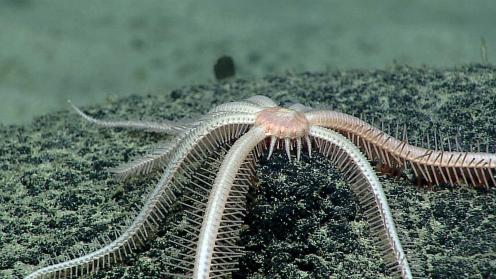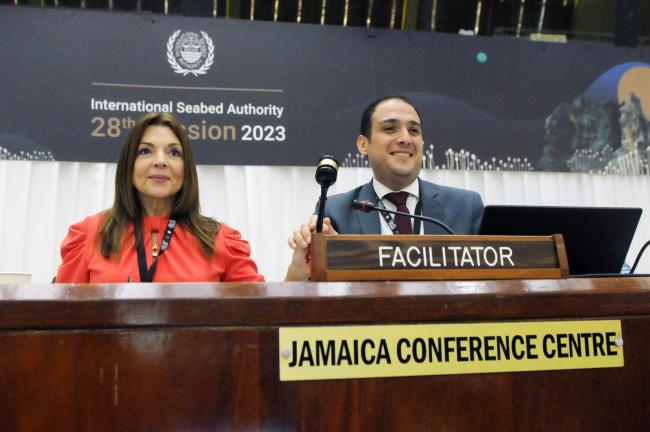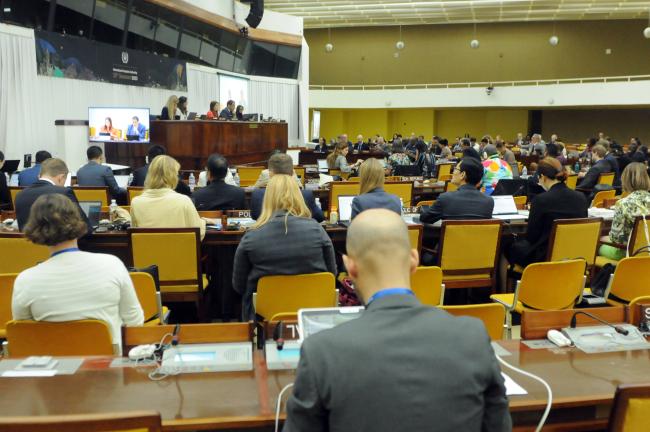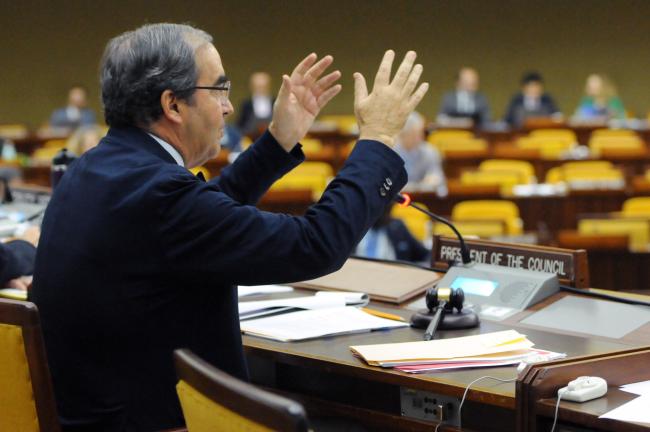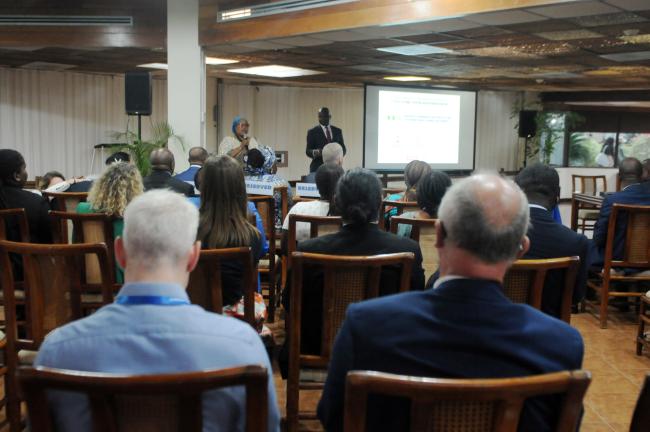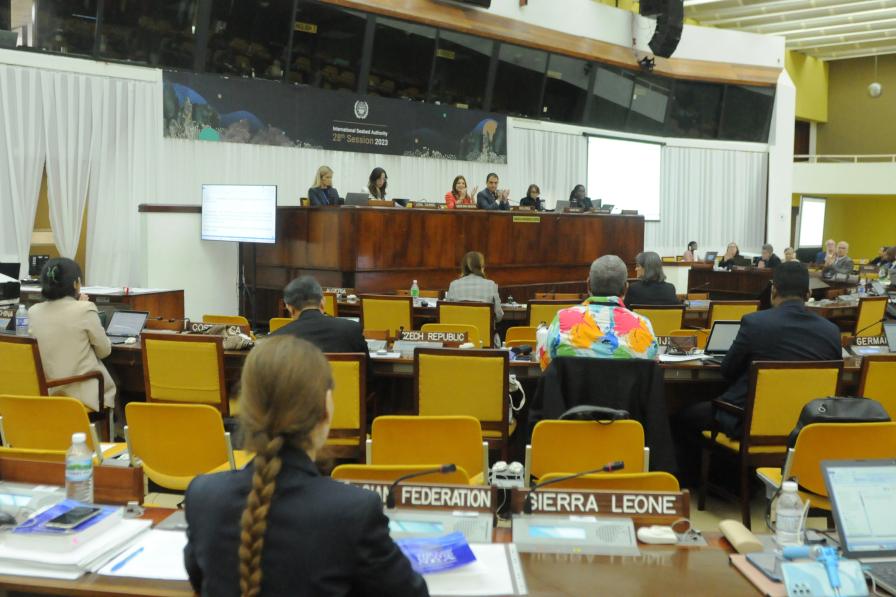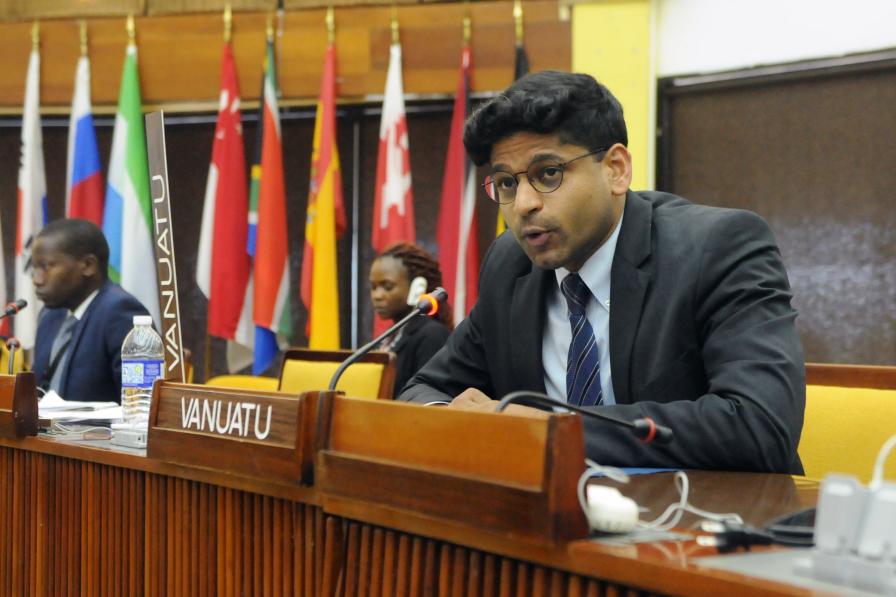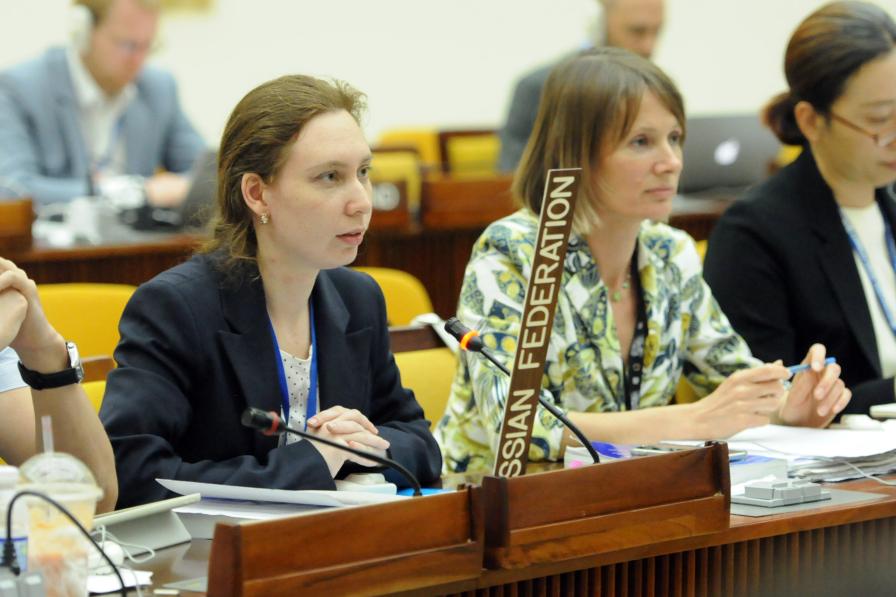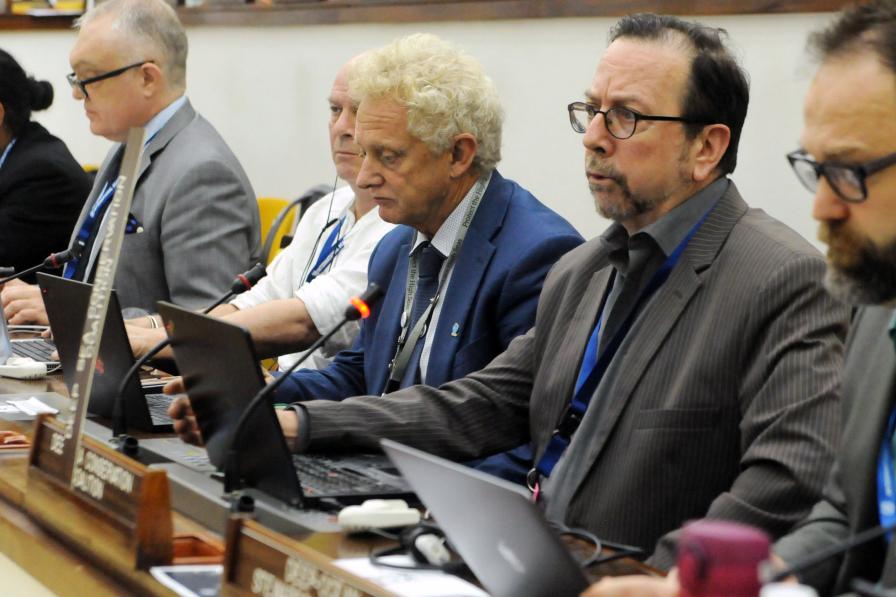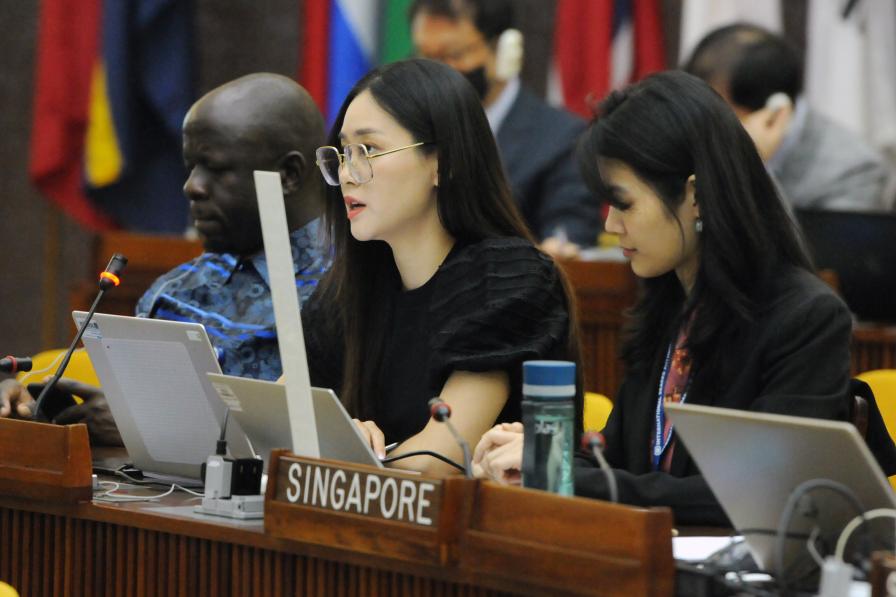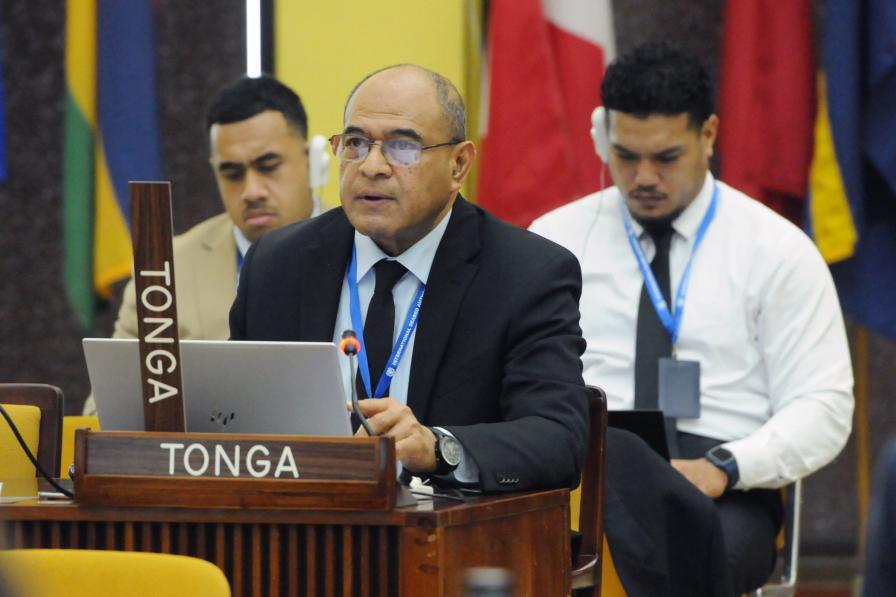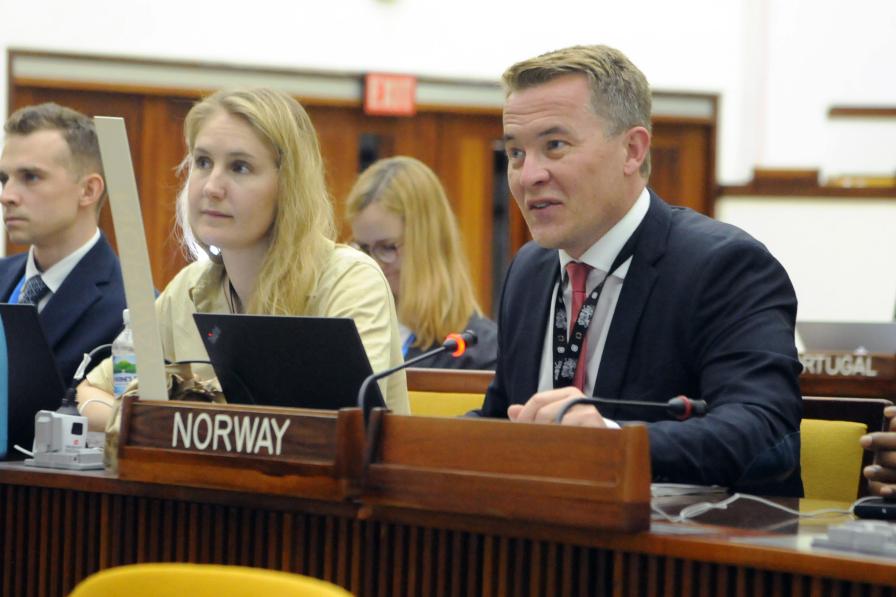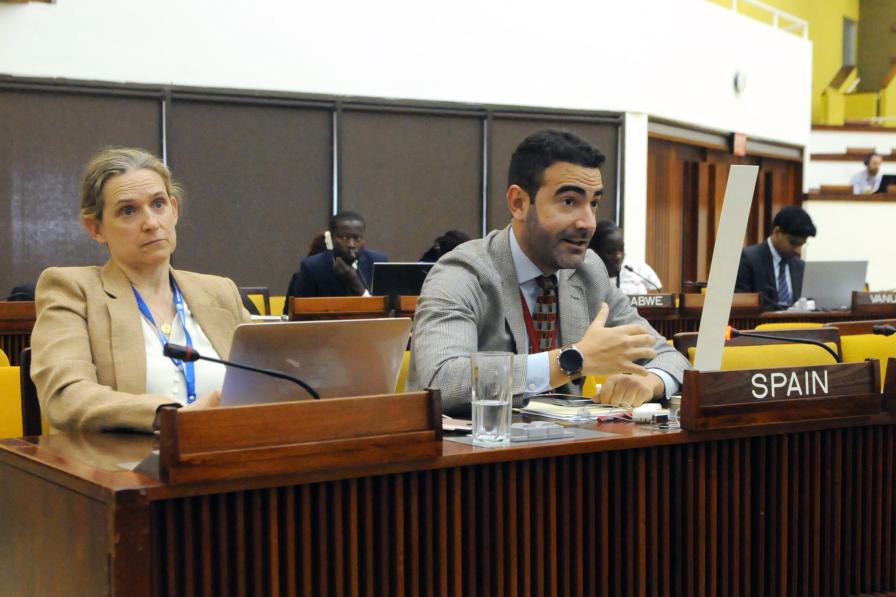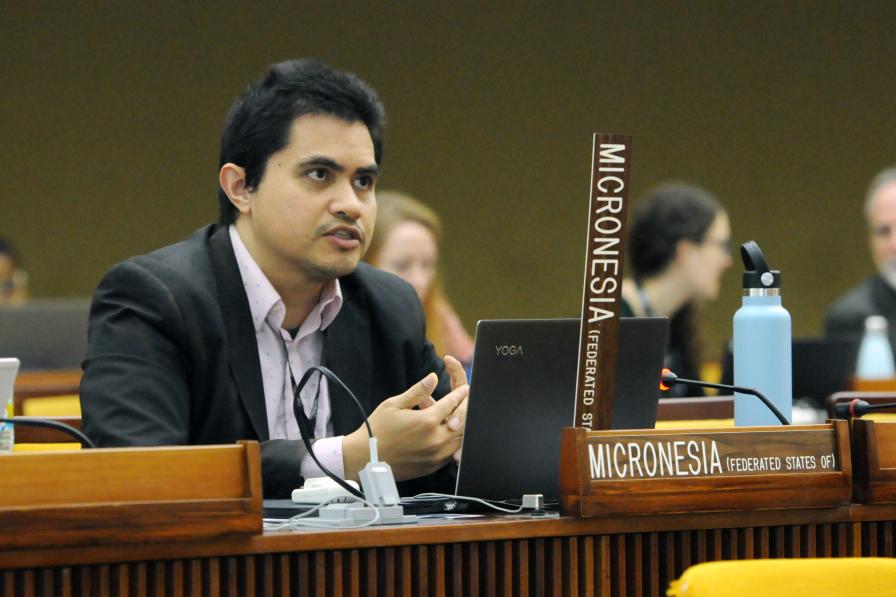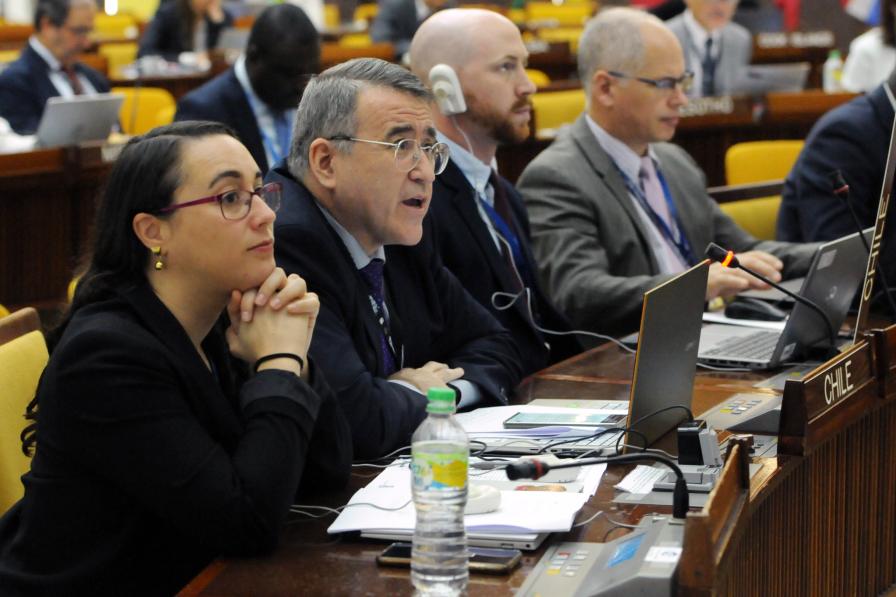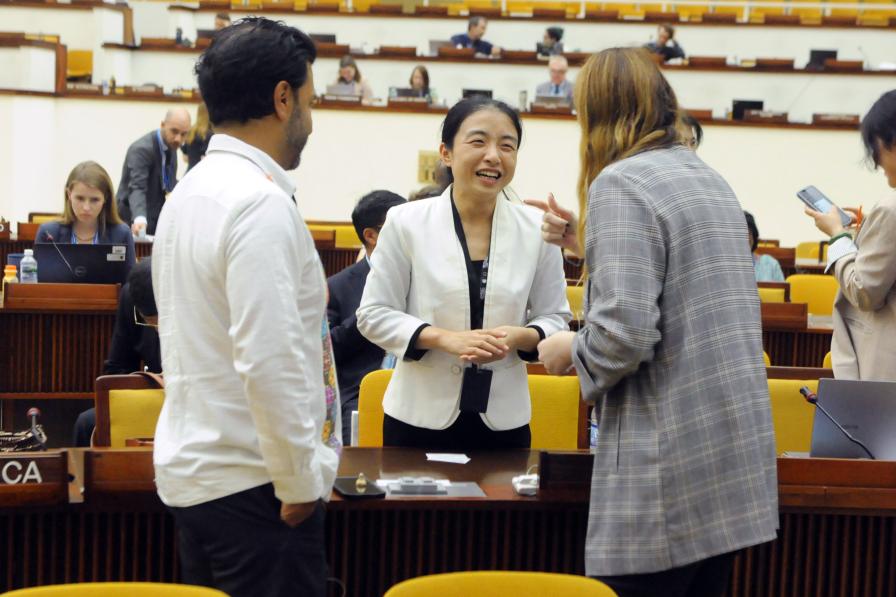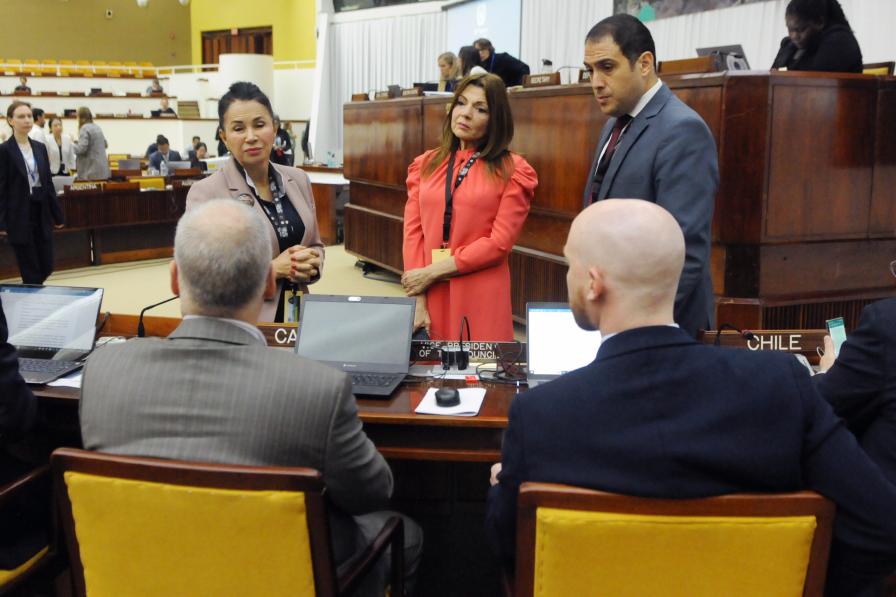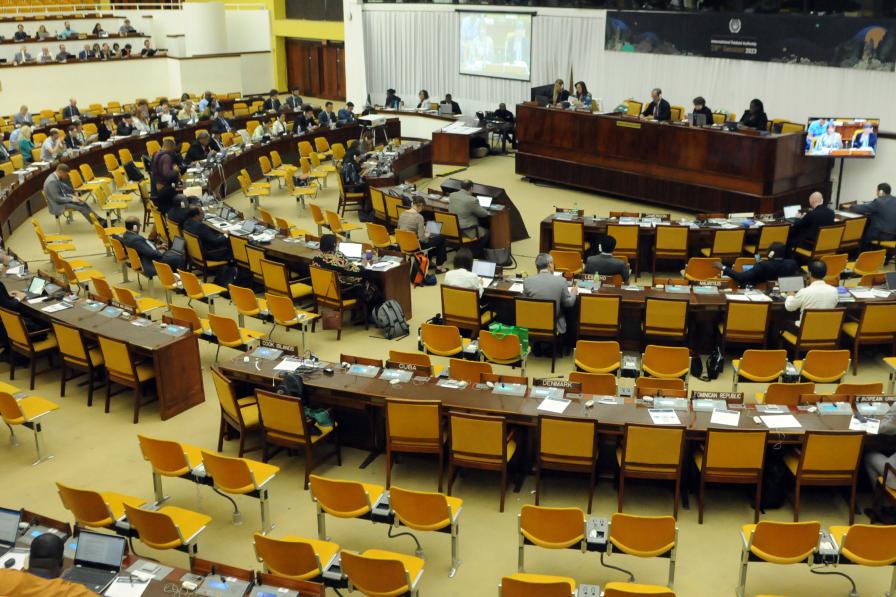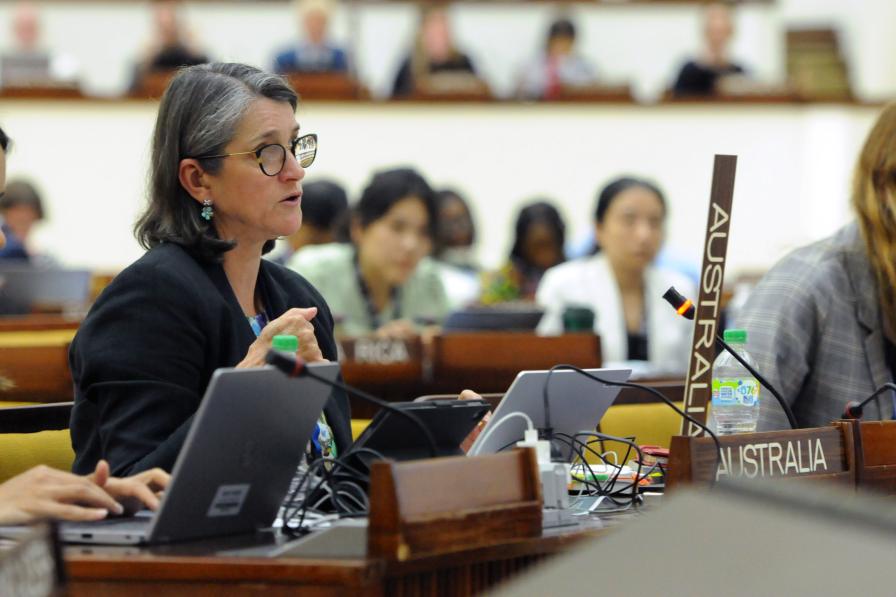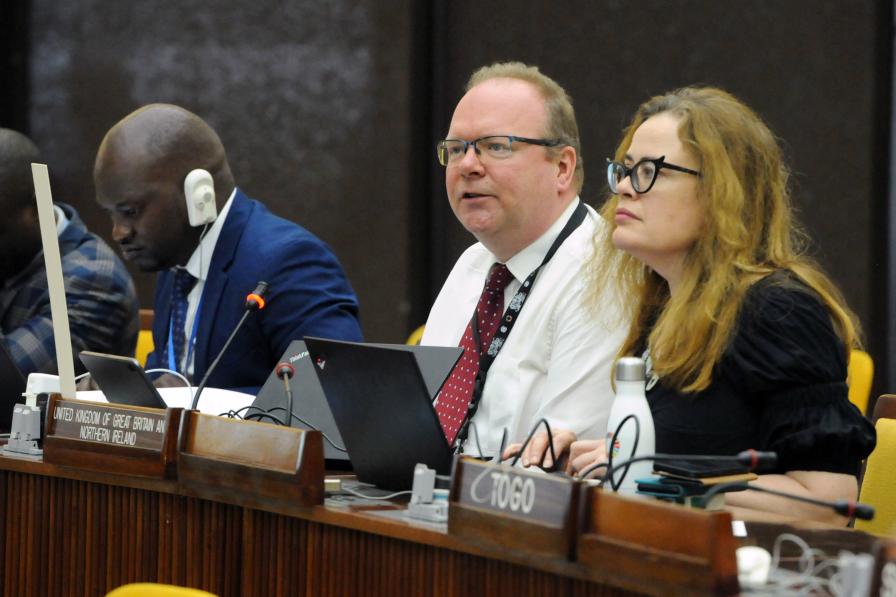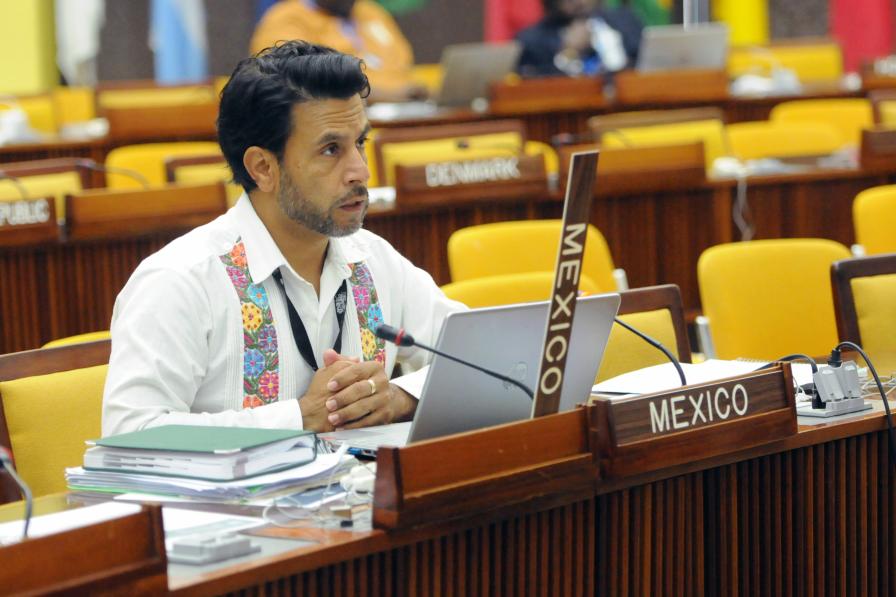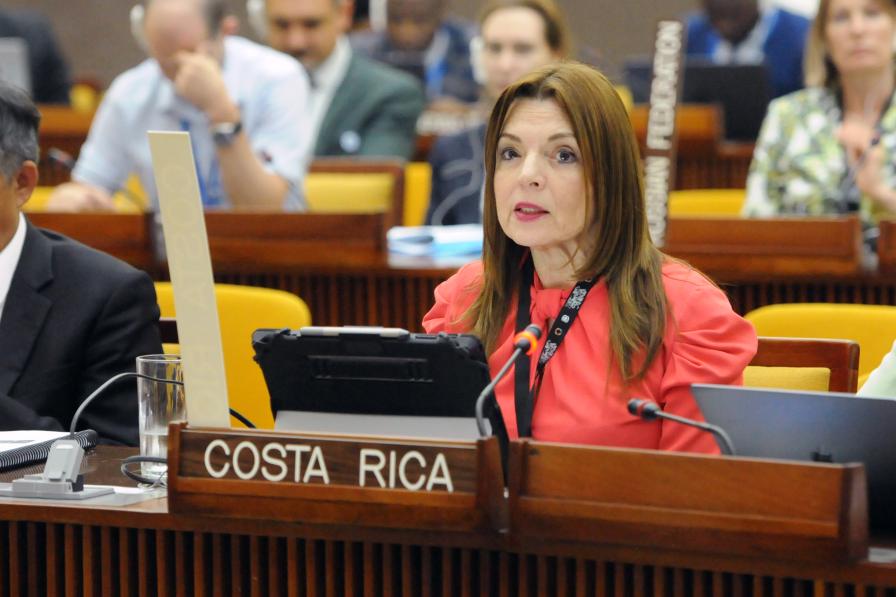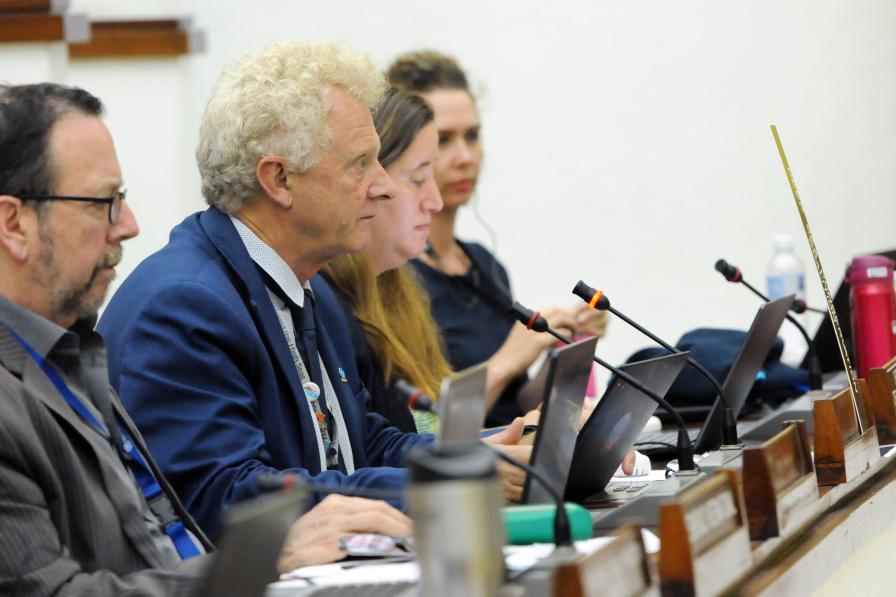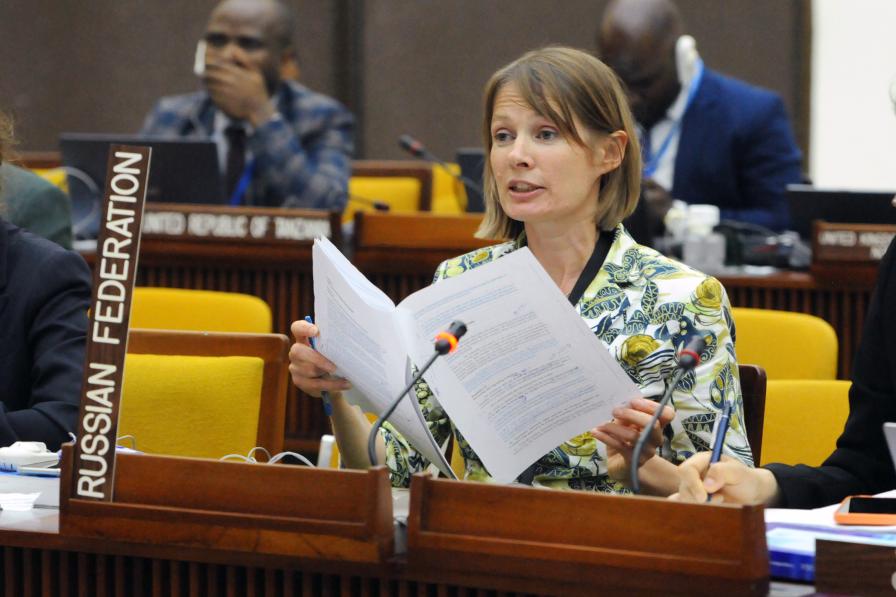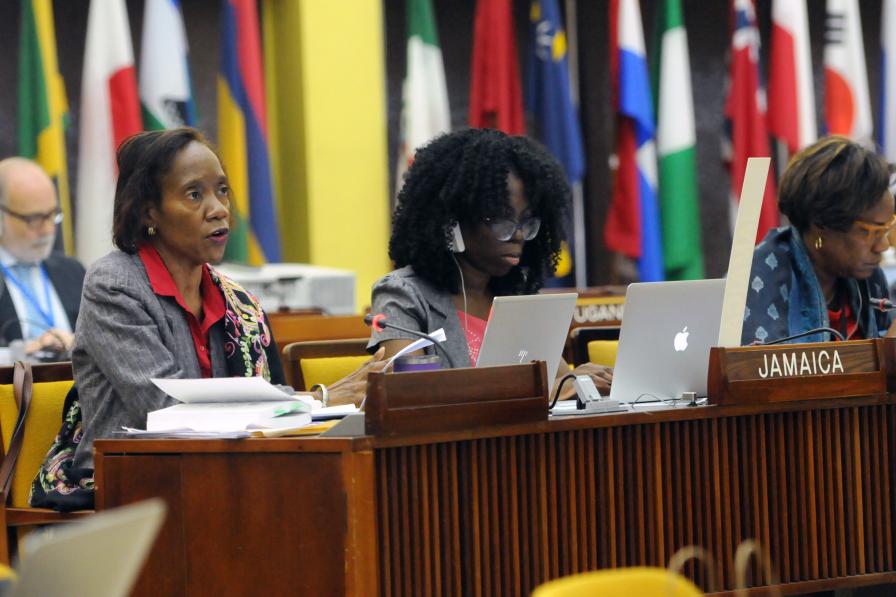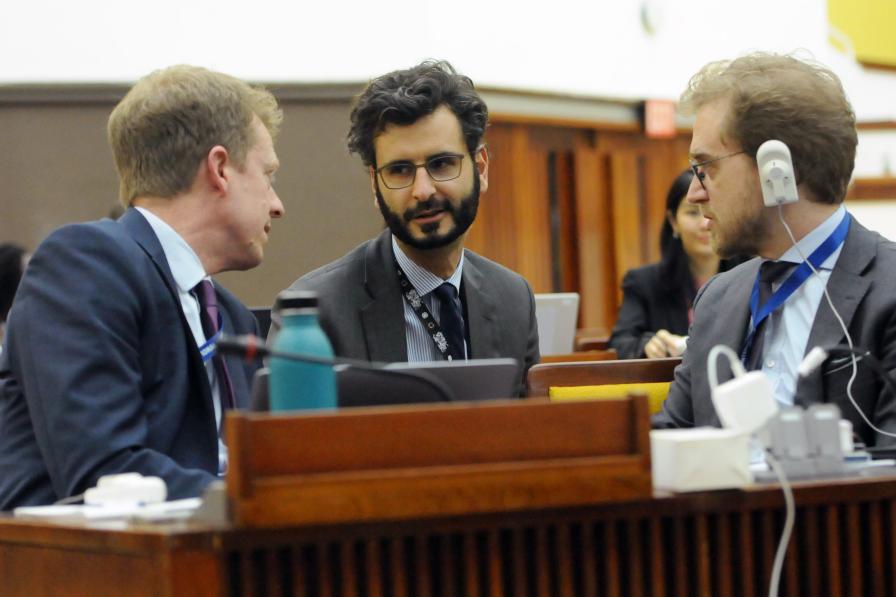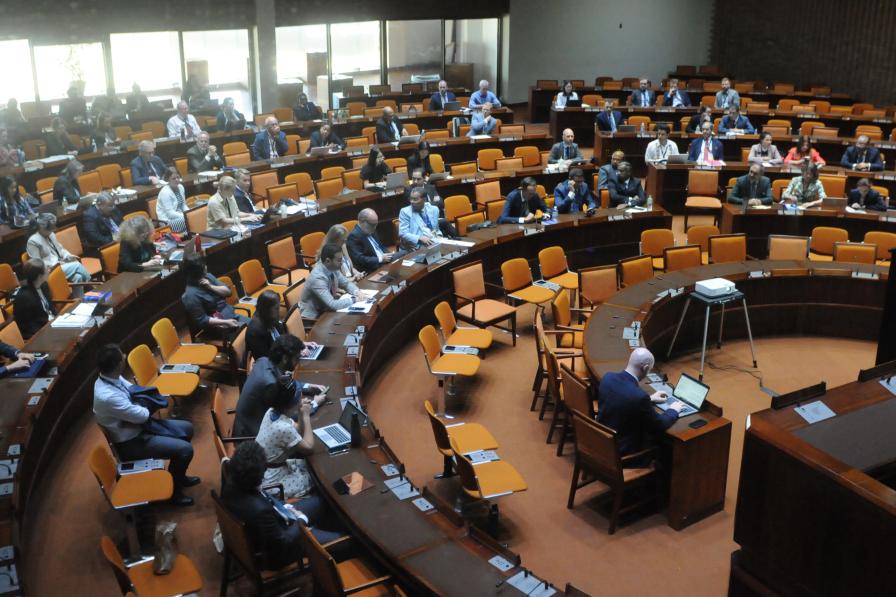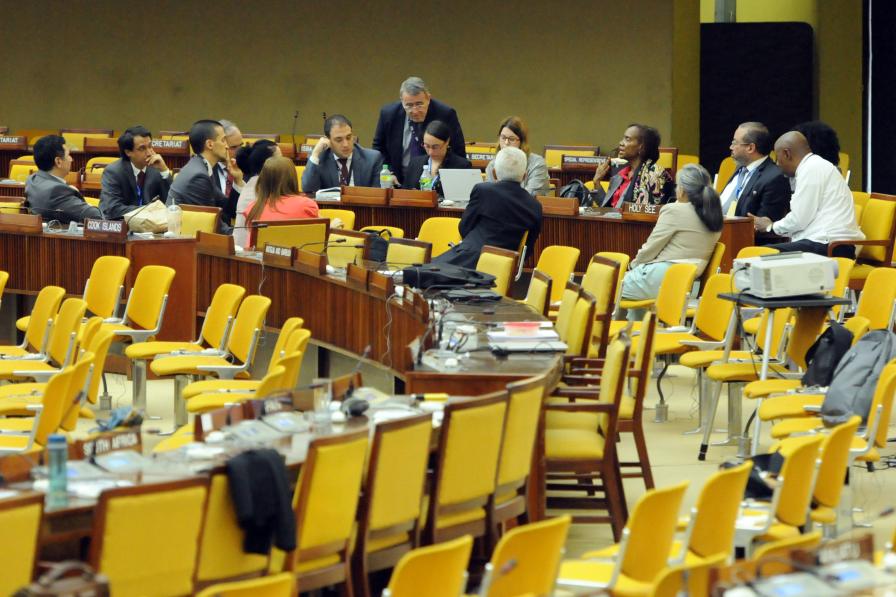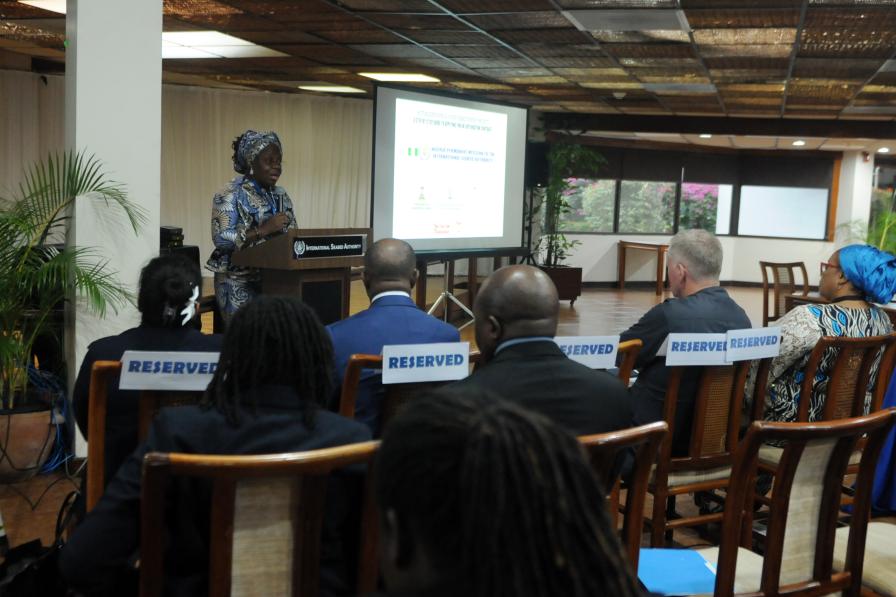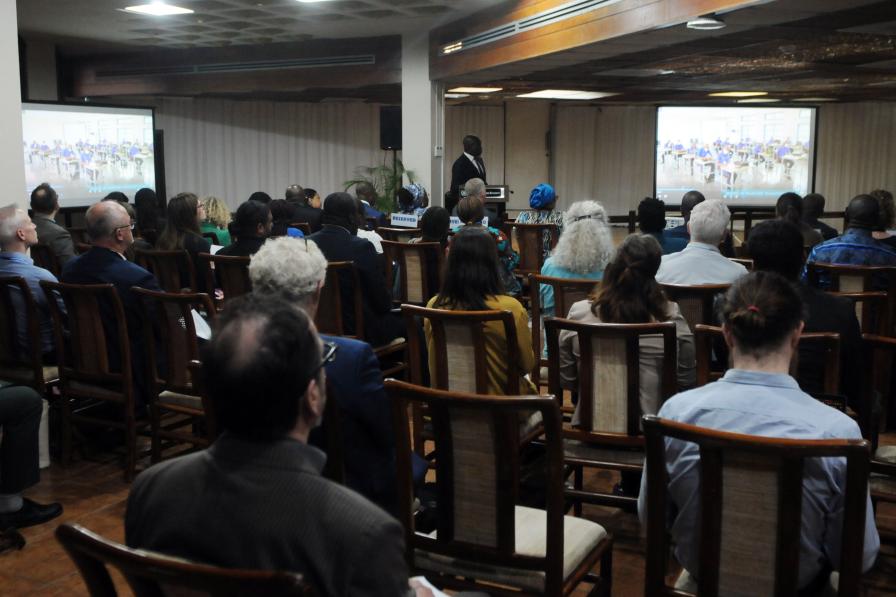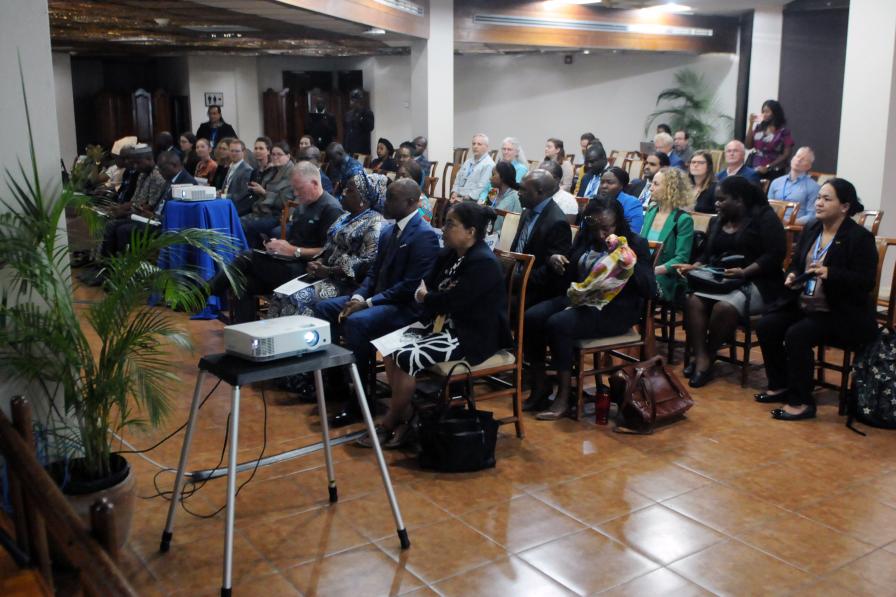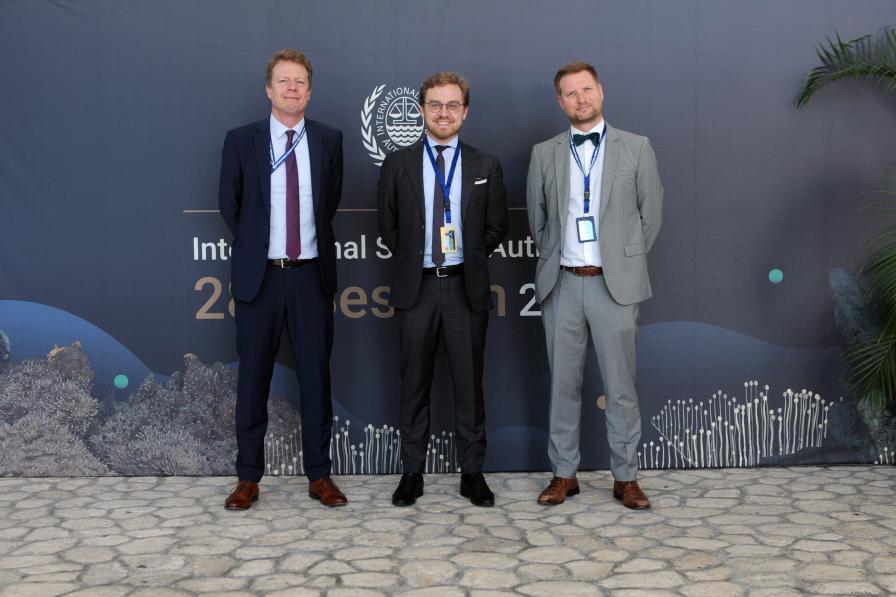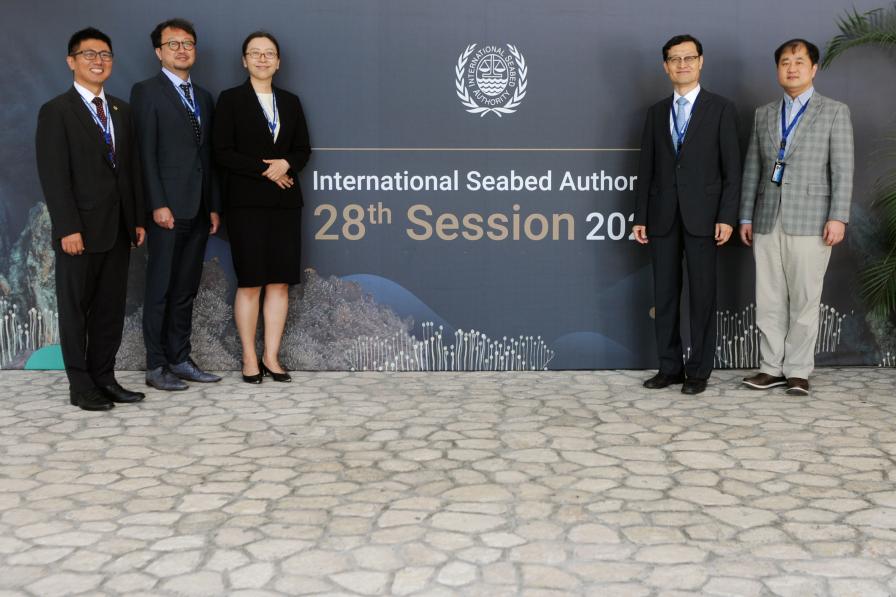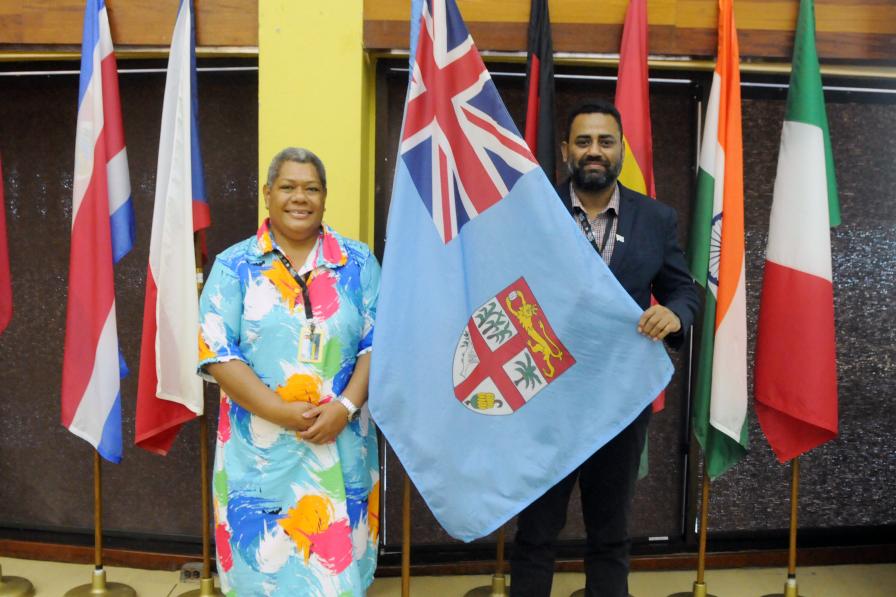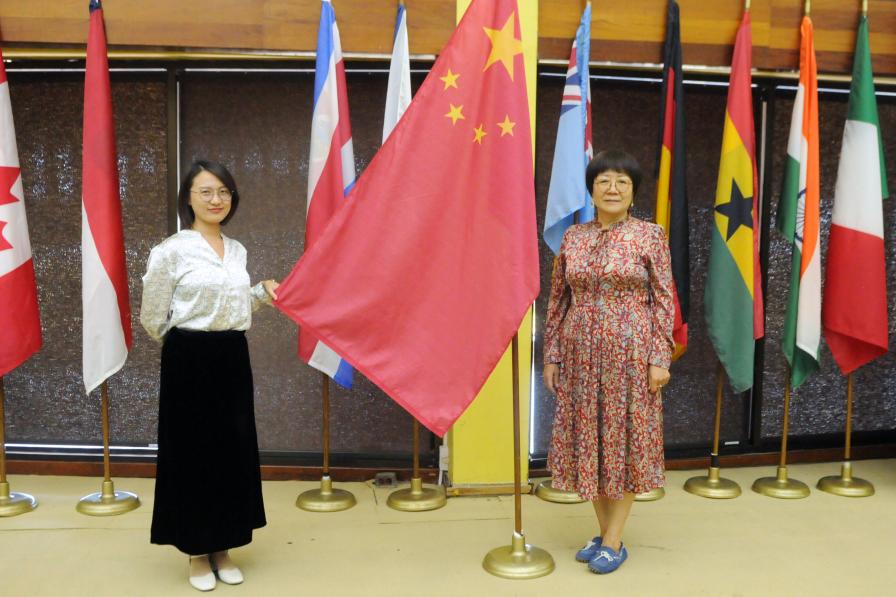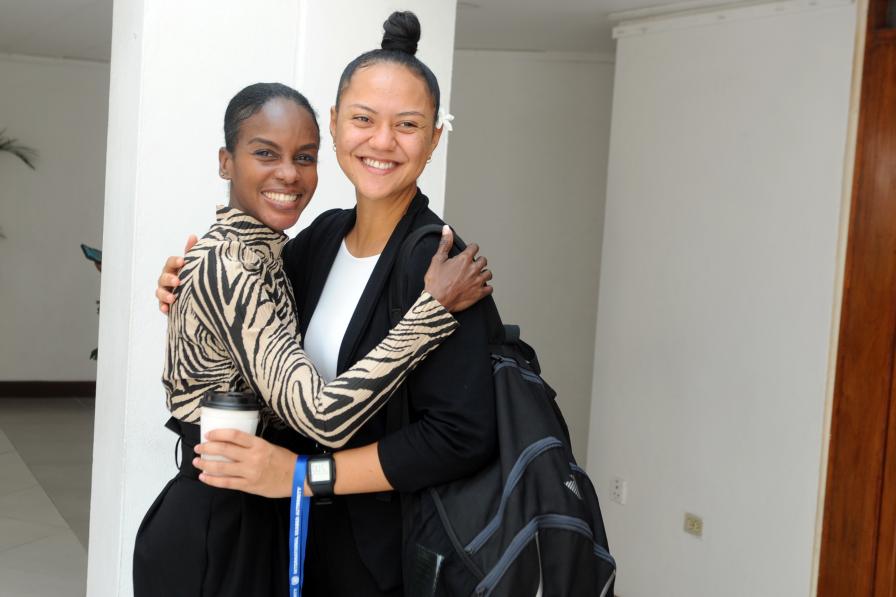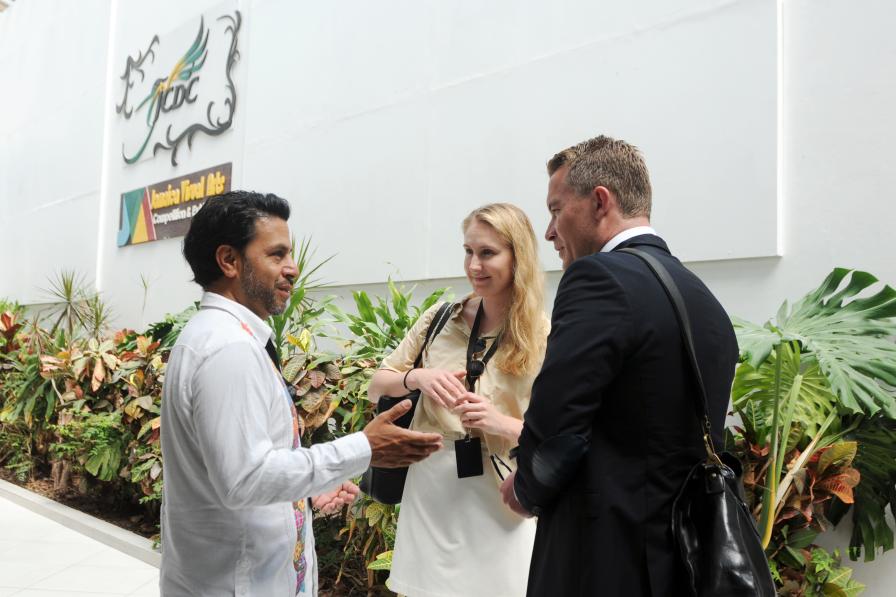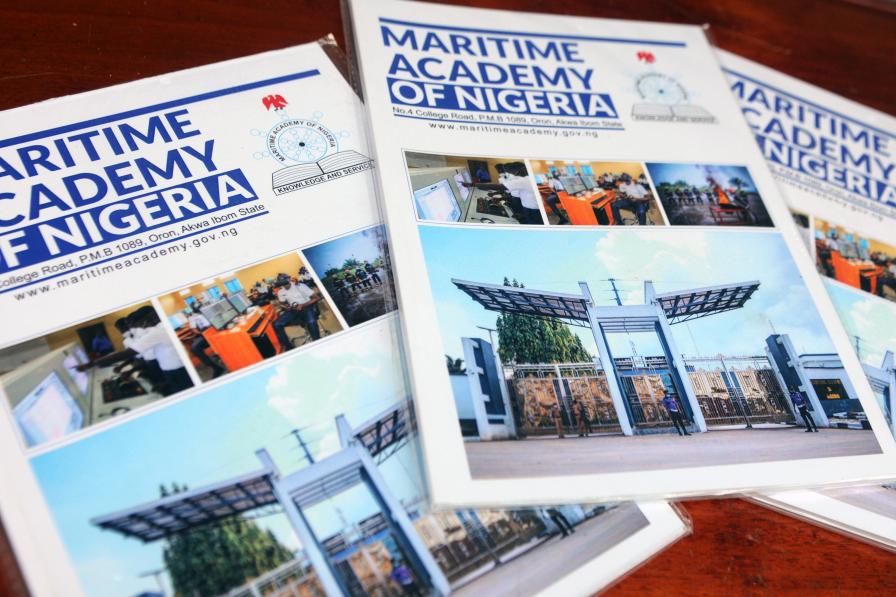The International Seabed Authority (ISA) Council continued its work on Wednesday with the Working Group on institutional matters concluding its deliberations in the morning, addressing principles, approaches and policies to be included in the draft exploitation regulations. In the afternoon, the Council met in an informal setting to discuss the President’s text, which includes all draft exploitation regulations that have not been taken up by any of the working groups.
Georgina Guillén Grillo (Costa Rica) and Salvador Vega Telias (Chile), Co-facilitators of the Working Group on institutional matters, opened the session, drawing attention to the news that the UN General Assembly adopted a resolution by consensus earlier in the day that requests an advisory opinion from the International Court of Justice on states’ legal obligations to address climate change. Vanuatu, the resolution’s original sponsor, highlighted the “historic moment,” emphasizing that the advisory opinion will contribute significantly towards protecting the rights of present and future generations from the adverse impacts of climate change.
On the principles and approaches to be included in the draft regulations, delegates discussed:
- intergenerational equity;
- the precautionary approach vis-à-vis the precautionary principle, with delegates expressing divergent opinions;
- the ecosystem approach, with one delegation preferring the phrase “ecosystem-based management”;
- the polluter pays principle;
- access to data and information relating to the protection and preservation of the marine environment, with some delegations suggesting to add a reference to knowledge sharing, and others supporting the inclusion of a reference to the exclusion of confidential information;
- accountability, inclusivity, and transparency in decision making, with some delegations suggesting deleting inclusivity and one delegate querying the inclusion of principles beyond those directly related to the protection of the marine environment; and
- effective public participation.
Co-facilitators Guillén and Vega noted that a refreshed text, incorporating the session’s outcomes and proposals as well as written submissions, will be developed for further consideration at the next Council meeting in July 2023. They further highlighted an intersessional webinar on effective control, which will clarify who may become a sponsoring state and whose sponsorship is required for a contractor’s application to the ISA.
In the afternoon, Council President Juan José González Mijares (Mexico) introduced the President’s text (ISBA/28/C/WOW/CRP.1), stressing it is a compilation of suggestions and text proposals since 2019. On reasonable regard for other activities in the marine environment, delegations focused on: reference to submarine cables, pipelines, and fisheries; the inclusion of regional environmental management plans; reference to standards and guidelines; and placement of a climate mitigation provision. Many delegates supported language furthering the due and reasonable regard obligations in the UN Convention on the Law of the Sea (UNCLOS) Articles 87 (freedom of the high seas) and 147 (accommodation of activities in the Area and in the marine environment).
Delegates further addressed a draft regulation on the risk of incidents, dealing with seabed activities that can cause serious harm to the marine environment and those defined in the Casualty Investigation Code of the International Maritime Organization. On preventing and responding to incidents, most delegates agreed that the contractor shall not proceed or continue with exploitation if it is reasonably foreseeable that the activity would cause or contribute to an incident. Divergent opinions were tabled on options about relevant contractor notification obligations.
On notifiable events, delegates discussed: whether to include coastal states; the kind and rationale of complaints; the purpose of the consultations that the Secretary-General can undertake; and stakeholder consultation. Regarding human remains and objects and sites of an archaeological or historical nature, opinions diverged on whether to include sites of paleontological nature among the findings that shall be notified.
On the section of insurance obligations, under the draft regulation on insurance, many delegations requested further clarification on the kind and purpose of the insurance. Some suggested deleting the provision, while most delegations highlighted the need for further discussion.
At lunchtime, delegates met informally to discuss the draft decision regarding the two-year rule, which stipulates that if a state submits a request for a plan of work for exploitation, the Council shall complete the adoption of the relevant rules, regulations, and procedures within two years of the request, and is triggered for 9 July 2023.
In the evening, a side event, hosted by Nigeria’s Permanent Mission in Jamaica, focused on actualizing Africa’s mining project, offering a step-by-step guide to applying for Africa’s deep seabed exploration contract.
Text written and edited by Asterios Tsioumanis, Ph.D., María Ovalle, and Pam Chasek, Ph.D.
All ENB photos are free to use with attribution. For the 1st Part of the 28th Annual Session of the ISA, please use: Photo by IISD/ENB | Diego Noguera
To receive free coverage of global environmental events delivered to your inbox, subscribe to the ENB Update newsletter.
